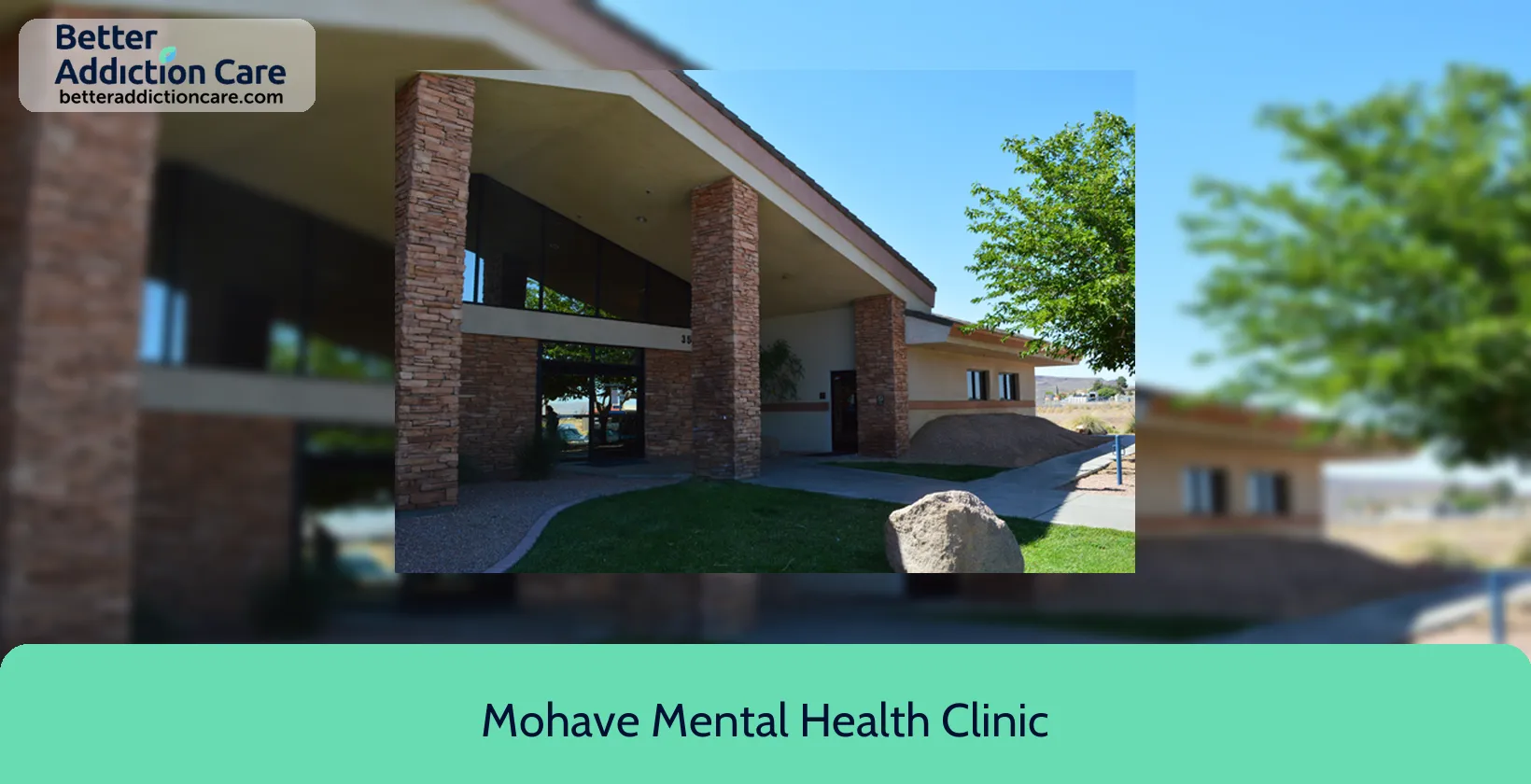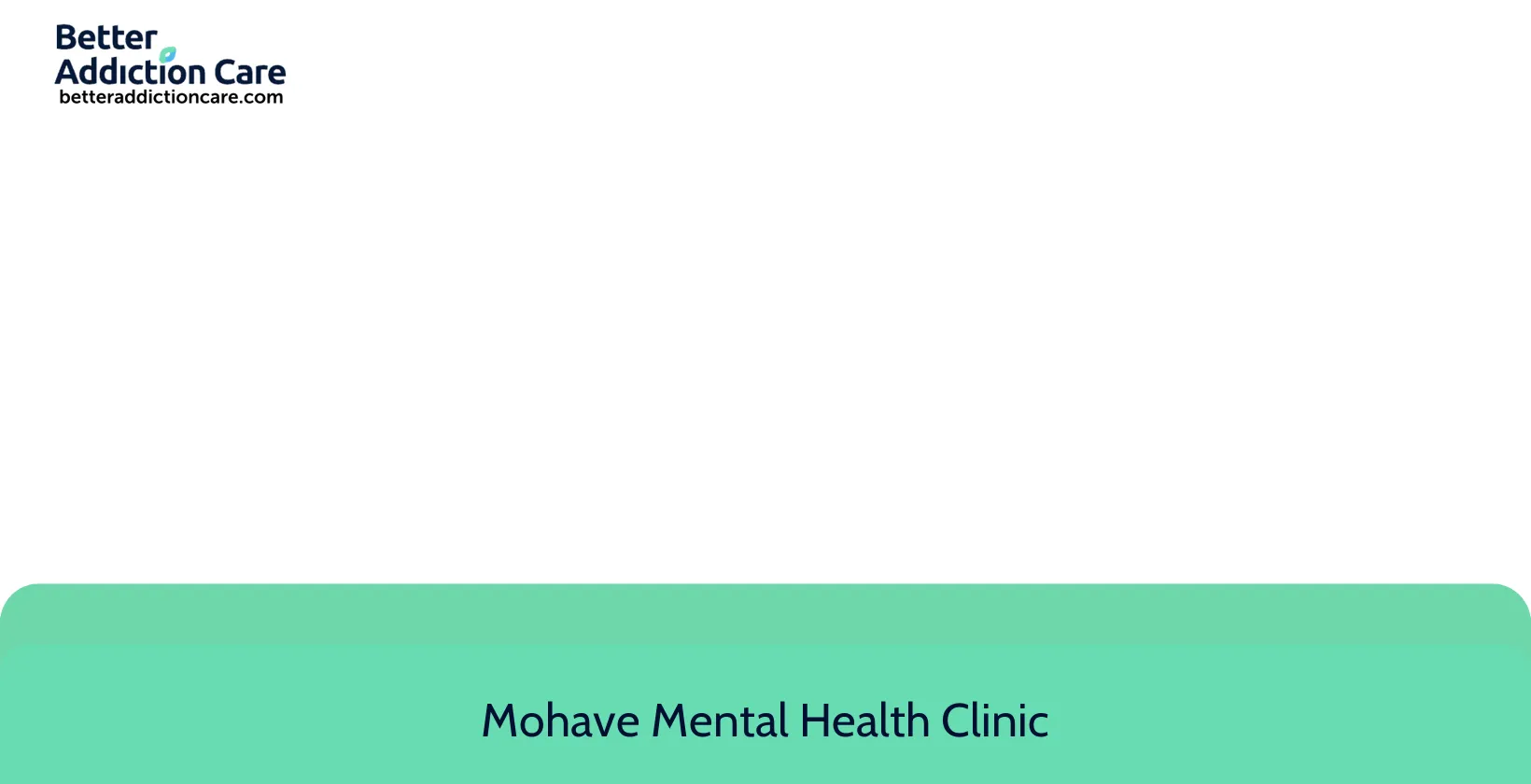Overview
Mohave Mental Health Clinic is a mental health treatment center for people seeking treatment near Mohave County. As part of their treatment modalities for recovery, Mohave Mental Health Clinic provides couples/family therapy, group counseling, and cognitive behavioral therapy during treatment. Mohave Mental Health Clinic is located in Kingman, Arizona, accepting cash or self-payment for treatment.
Mohave Mental Health Clinic at a Glance
Payment Options
- Cash or self-payment
- Medicaid
- Medicare
- State-financed health insurance plan other than Medicaid
- Private health insurance
Assessments
- Screening for tobacco use
- Comprehensive mental health assessment
- Comprehensive substance use assessment
Age Groups
- Seniors or older adults
- Young adults
- Adults
- Seniors
Ancillary Services
- Assertive community treatment
- Intensive case management
- Case management service
- Chronic disease/illness management
- Court-ordered outpatient treatment
Highlights About Mohave Mental Health Clinic
6.74/10
With an overall rating of 6.74/10, this facility has following balanced range of services. Alcohol Rehabilitation: 8.00/10, Drug Rehab and Detox: 6.00/10, Insurance and Payments: 6.00/10, Treatment Options: 6.97/10.-
Alcohol Rehabilitation 8.00
-
Treatment Options 6.97
-
Drug Rehab and Detox 6.00
-
Insurance and Payments 6.00
Accreditations
Federally Qualified Health Center:
Federally Qualified Health Center (FQHC) accreditation is a process of evaluation and recognition by the federal government for community health centers that provide comprehensive and accessible healthcare services to underserved populations. FQHC accreditation is essential for centers to receive federal funding and to ensure that they meet standards for quality, patient-centered care.
Treatment At Mohave Mental Health Clinic
Treatment Conditions
- Alcoholism
- Mental health treatment
- Substance use treatment
- Co-occurring Disorders
Care Levels
- Outpatient
Treatment Modalities
- Couples/family therapy
- Group counseling
- Cognitive behavioral therapy
- Dialectical behavior therapy
- Integrated Mental and Substance Use Disorder treatment
Ancillary Services
Languages
- Sign language services for the deaf and hard of hearing
- Spanish
Additional Services
- Pharmacotherapies administered during treatment
- Mentoring/peer support
- Metabolic syndrome monitoring
Special Programs
- Clients with co-occurring mental and substance use disorders
- Clients who have experienced trauma
- Persons 18 and older with serious mental illness (SMI)
Contact Information
Read our Most Recent Article About Drug Addiction
DISCLAIMER: The facility name, logo and brand are the property and registered trademarks of Mohave Mental Health Clinic, and are being used for identification and informational purposes only. Use of these names, logos and brands shall not imply endorsement. BetterAddictionCare.com is not affiliated with or sponsored by Mohave Mental Health Clinic.










